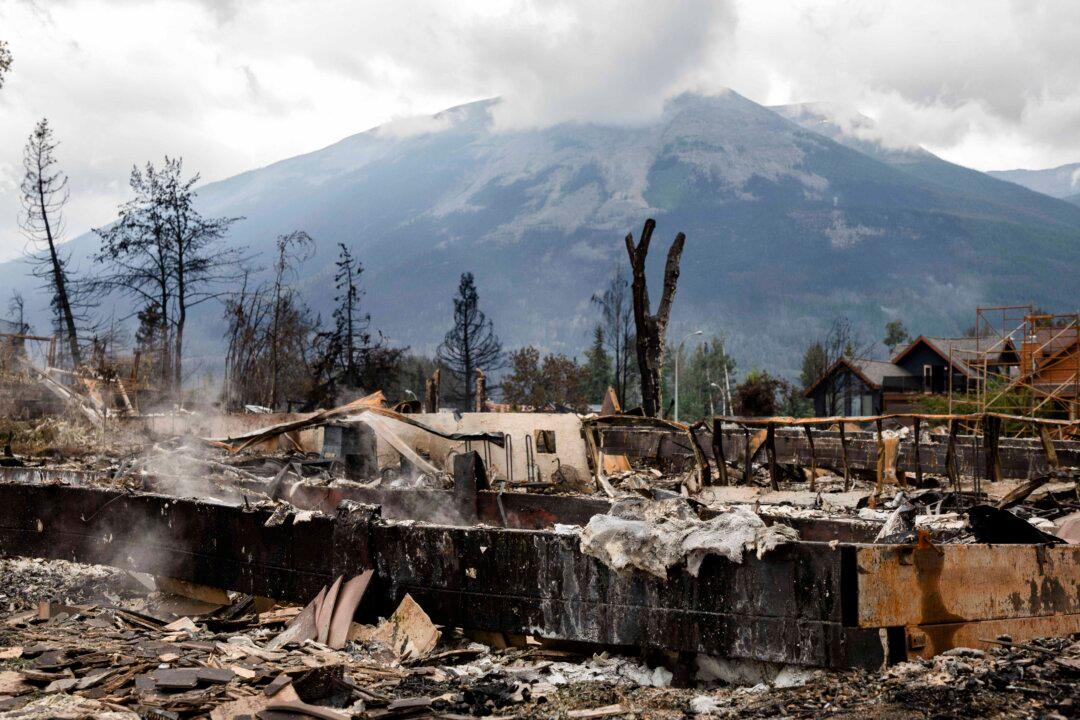Alberta is asking the federal government to pick up the cost of Jasper’s recovery from this summer’s wildfires, saying the fire originated in an area of federal jurisdiction where Alberta had limited decision-making opportunity.
“This is a fire which originated in the national park and then spread to the town of Jasper,” Mike Ellis, Alberta Deputy Premier and Minister of Public Safety and Emergency Services, said at an Oct. 7 House of Commons committee meeting.





